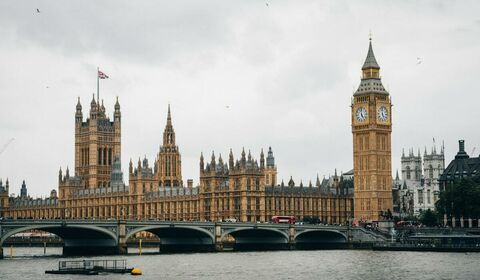Estate Planning & Inheritance Tax Resources
Estate Planning & Inheritance Tax
Inheritance Tax is levied on a person’s estate when they die and can also be payable during a person’s lifetime on certain trusts and gifts. The rate of Inheritance Tax payable is 40% on death and 20% on lifetime gifts. There is a nil rate band, currently £325,000, below which no Inheritance Tax is payable. A reduced rate of Inheritance Tax of 36% (reduced from 40%) applies where 10% or more of a deceased’s net estate after deducting IHT exemptions, reliefs and the nil rate band is left to charity.
It is important to note that, other than in the case of very large gifts (above the nil rate band) no Inheritance Tax is payable on gifts made or received during someone’s lifetime. However, on death the executors are required to report on the value of taxable gifts made by the deceased during the seven-year period immediately prior to their death.
Inheritance Tax and probate forms
It is a legal requirement to complete Inheritance Tax forms as part of the probate process even where no Inheritance Tax is due. The estate must pay some or all of any Inheritance Tax due before a grant of probate can be obtained.
Valuing an estate
In order to ascertain whether or not Inheritance Tax is due, the executor or personal representative of the deceased must value the deceased's estate. This is done by calculating the total value of the assets and gifts of the deceased and deducting any debts.
Payment of Inheritance Tax
Inheritance Tax is due six months after the end of the month in which the deceased died. In certain cases it is possible to pay by annual instalments or to make payments later with the addition of interest.
Transferable nil rate band
A surviving spouse or civil partner is able to receive the benefit of the nil rate band unused on the death of their partner. When the second person dies, their estate is allowed to utilise their own nil rate band plus the remaining proportion of the unused nil rate band from the death of the first partner.
This in effect allows for the doubling of the nil rate band for married couples and civil partners.
Main Residence Nil-rate Band (RNRB)
The IHT main residence nil-rate band (RNRB) came into effect on 6 April 2017. The RNRB was introduced in stages and the allowance has increased to its present maximum level of £175,000.
The allowance is available to the deceased person’s children or grandchildren. There is a tapered withdrawal of the additional nil-rate band for estates with a net value of more than £2m at a withdrawal rate of £1 for every £2 over this threshold.
Reliefs and exemptions from Inheritance Tax
Donations
Any gifts made to a UK charity during a donor’s lifetime, or in his will, are exempt from Inheritance Tax. Political donations to any UK political party that has at least two members elected to the House of Commons or has one elected member but the party received at least 150,000 votes are also eligible for relief. It is also possible to make donations to certain national institutions such as museums, universities and the National Trust and benefit from relief.
Business Relief*
Business relief (50% or 100%) can be claimed on qualifying property and buildings, or assets such as unlisted shares or machinery.
Agricultural property*
Agricultural property relief (50% or 100%) can be claimed on farming land, working farmhouses, farm workers' cottages and barns. There is no agricultural relief for farm equipment but the equipment may qualify for business relief.
*[From 6 April 2026, reforms to Agricultural Property Relief (APR) and Business Property Relief (BPR) will take effect. A 100% rate of relief will be retained for the first £2.5 million of combined qualifying agricultural and business property per estate, with any qualifying value above this threshold attracting 50% relief. The £2.5 million allowance will be transferable between spouses or civil partners, potentially allowing up to £5 million of qualifying assets to benefit from full relief on death.
In all cases, shares that are not listed on a recognised stock exchange (including AIM shares) will qualify for 50% relief only and will not benefit from the 100% allowance. The option to pay inheritance tax attributable to APR and BPR property by equal annual instalments over up to 10 years will be extended to apply to property benefiting from the reduced 50% relief, with broadly similar rules applying to trusts.]
Woodland timber
There are special reliefs for woodland timber which allow the value of the timber (but not the land on which it sits) to be exempted from an estate.
National Heritage
There are special rules for national heritage property and famous and important works of art.
Recurring annual gifts out of surplus income
This is a commonly used exemption for wealthy taxpayers. Gifts which are made from surplus income which do not result in a fall of the standard of living of the donor are exempt from Inheritance Tax. There is no published limit to this relief; the amount that can be given is only restricted by a taxpayer’s surplus income. This includes monthly or other regular payments to someone, regular gifts for Christmas and birthdays, or wedding/civil partnership anniversaries, regular premiums on a life insurance policy - for you or someone else.
Annual gifts out of capital
Taxpayers may gift up to £3,000 per year to an individual without a charge to Inheritance Tax. The annual exemption may be carried forward by one year but not thereafter.
Small gifts out of capital
Taxpayers may give gifts of up to £250 per recipient per tax year without incurring any Inheritance Tax charge. The exemption does not apply where the gift exceeds £250.
Gifts on marriage
There are also reliefs for wedding gifts. A parent may gift up to £5,000 with no Inheritance Tax liability and grandparents and great-grandparents up to £2,500. There is also a general limit for gifts on marriage of up to £1,000 (per donor).
Potentially Exempt Transfers
Most gifts made during a person’s life are not subject to tax at the time of the gift. These lifetime transfers are known as 'potentially exempt transfers' or 'PETs'. These gifts or transfers achieve their potential of becoming exempt if the taxpayer survives for more than seven years after making the gift. If the taxpayer dies within 3 years of making the gift, then the Inheritance Tax position is as if the gift was made on death. A tapered relief is available if death occurs between three and seven years after the gift is made.
The rules surrounding PETs have resulted in many people wanting to make gifts long before they die. The problem in practice is that they do not want to give up control over the assets concerned. A common example is a person giving their house away but continuing to live in it rent-free. Such gifts are known as 'gifts with a reservation of benefit'. The taxman does not accept that a true gift has been made so the 'gift' remains subject to Inheritance Tax even if the taxpayer dies more than 7 years later.
The effective rates of tax on the excess over the nil rate band for PETs is:
- 0 to 3 years before death 40%
- 3 to 4 years before death 32%
- 4 to 5 years before death 24%
- 5 to 6 years before death 16%
- 6 to 7 years before death 8%
If the donor gives something away but still continues to benefit from it, this is known as a ‘gift with reservation’ and counts towards the value of your estate.
Making a will
If the deceased had made a Will this should ensure that the estate is divided amongst their beneficiaries in accordance with their wishes. However, if the deceased has not left a Will the law decides who inherits the estate. This can result in a distribution of assets that would not have been the wishes of the deceased and can be especially problematic for cohabitees (a couple who live together but are not married and have not entered into a civil partnership).
It should be noted that even when a valid Will is in place arguments between family members, beneficiaries or personal representatives can arise. Any disagreements must be sorted out before the affairs of the person who died can be settled. This can sometimes be so contentious that it has been left to the Courts to decide if a Will made by a deceased person was valid or invalid.
A Will can also be changed after death. This can be done by what is known as a Deed of Variation. This can be done up to two years from the date of death and is most often done to reduce Inheritance Tax liability, help the tax position of a beneficiary or help someone who was left out of the Will. A Deed of Variation can only be executed upon the agreement of all the beneficiaries. It is more complicated if children are involved as they cannot themselves consent to changes.
If someone dies without a Will or any known family their property passes to the Crown as ownerless property. This is known as ‘bona vacantia’.
HMRC bereavement services
HMRC has a specialist team that deal with bereavement issues that arise when a taxpayer dies. A separate HMRC team also provides specialist advice on a deceased person’s estate relating to Income Tax and Capital Gains Tax. These teams provide family members or personal representatives with help in finalising the tax affairs of the deceased.
Updated on 26/02/2026.



